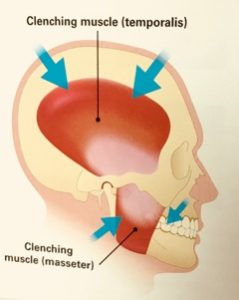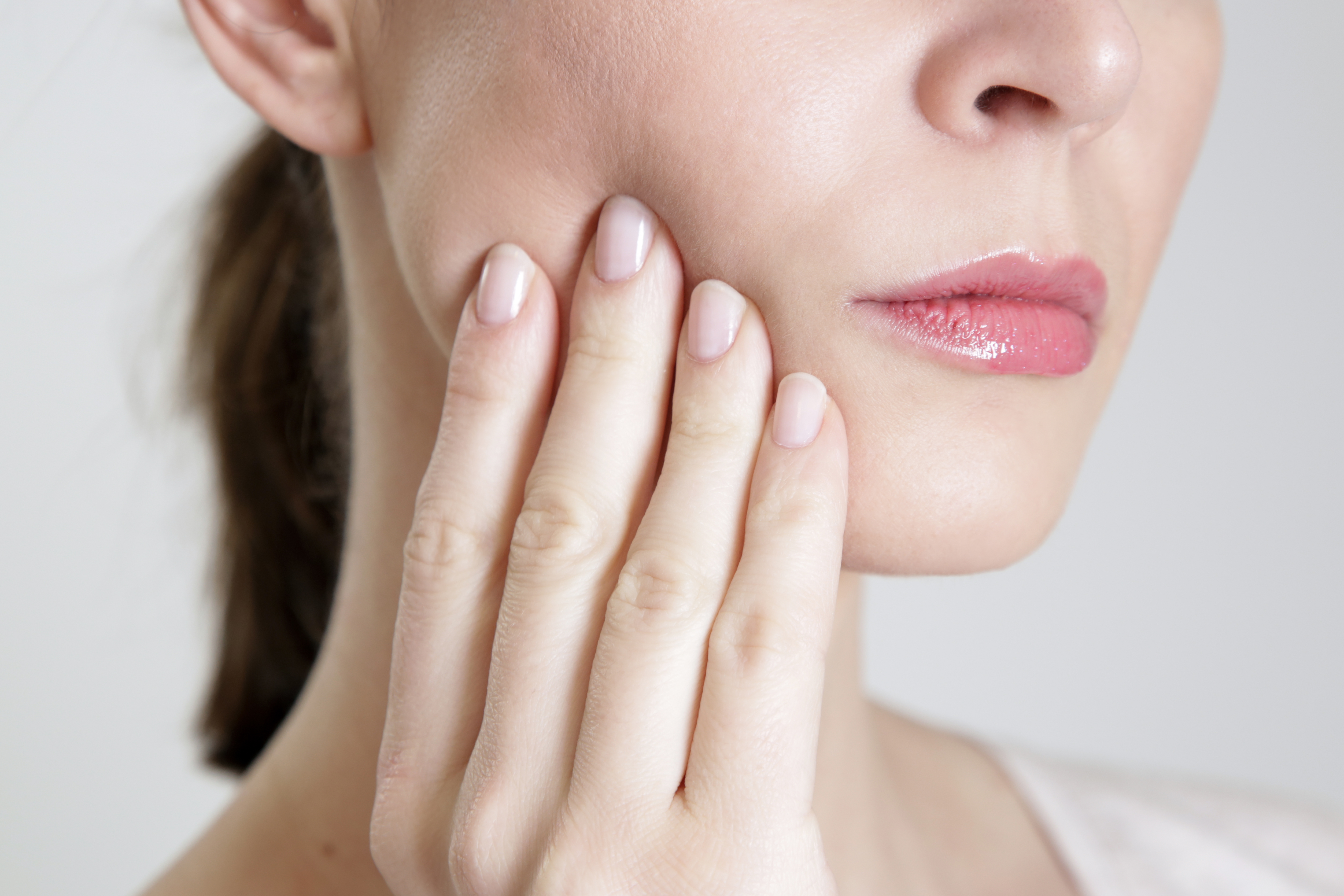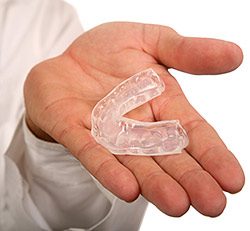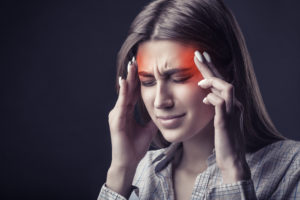TMJ Treatment
Millions of people suffer from TMD or TMJ. Many of those people have no knowledge of their condition or how to seek treatment. Headaches and pain are the most common symptoms caused by TMJ. Patients have found relief at Cosmetic Dentistry Center, located in Newton, MA, through safe, comfortable, treatments.
What Is Temporomandibular Joint Disorder?
Temporomandibular Joint Disorder, also known as TMJ, TMD, or TMJD, is a condition that effects the temporomandibular joint. This joint is the main joint of the jaw and is often misaligned, causing the painful condition. TMJ causes headaches, neck pain, and jaw pain, resulting in difficulty to open or close the mouth. Many symptoms of TMJ are mistaken for stress and unfortunately left to get progressively worse.
Symptoms of TMJ
Clenching the teeth puts pressure on the muscles, tissues, and other structures around your jaw. Dr. Edward Walk of Newton, MA has seen patients with broken veneers, fractured teeth, and damaged porcelain crowns, all caused by clenching and grinding. These symptoms can cause temporomandibular joint problems (TMJ).
Other Symptoms of bruxism include the following:
- Anxiety, stress, and tension
- Enlarged facial muscles (masseters and temporalis especially)
- Earache (due in part because the structures of the temporomandibular joint are very close to the ear canal, and because you can feel pain in a different location than its source; this is called referred pain)
- Eating disorders
- Headache
- Muscle tenderness, especially in the morning
- Hot, cold, or sweet sensitivity in the teeth
- Insomnia and sleep interruption episodes
- Sore or painful jaw
- Tinnitus (ringing, hissing, buzzing in ears)
TMJ Causes

There is some disagreement about the cause of bruxism. Daily stress may be the trigger in many people. Some people probably clench their teeth and never feel symptoms. Factors that influence whether or not bruxism causes pain and other problems will vary from person to person. They may include:
- Your diet
- How long and tightly you clench and grind
- Whether your teeth are misaligned or a new filling or crown is ‘high’
- Tinnitus (ringing, hissing, buzzing in ears)
- Your ability to relax
- How much stress you are under
- Your sleeping habits
- Your posture
What will happen if TMJ is not treated?
The main symptom of TMJ/TMD is chronic pain – not only in the jaw, but also in the teeth, neck, ears, shoulder, mouth, and head. Leaving chronic pain untreated can cause a number of emotional issues and effect the course of patients lives. TMJ has been known to lead to addictions, depression, and alcoholism when left untreated. Patients with TMJ often suffer from bruxism as well, leaving them with damaged teeth and the inability to get a good nights sleep.
TMD is a painful disorder that should be treated as soon as it is detected. People who put off treatment are at risk of developing life damaging issues. TMJ is often attributed to signs of stress, leaving many cases of this disorder untreated. If you are experiencing any of the listed symptoms, be sure to contact Cosmetic Dentistry Center immediately.
What is Bruxism?
Bruxism is when you clench (tightly hold your top and bottom teeth together) or grind (slide your teeth back and forth over each other) your teeth. People can clench and grind without being aware of it. It can happen during both the day and night, although sleep-related bruxism is often a bigger problem because it is harder to control. If you often wake up with jaw pain, earaches, or headaches, you may have a common condition called “bruxism.â€
Complications Caused By Bruxism
If not corrected, bruxism can lead to many complications. Here are a few possible complications caused by Bruxism:
- Depression
- Insomnia
- Increased dental or TMD problems
- Fractured teeth
- Tooth Loss
- Receding gums
If you grind your teeth at night, be sure to contact Cosmetic Dentistry Center before you do permanent damage to your mouth. Untreated bruxism could lead to jaw pain, headaches, and TMJ.
How is TMJ diagnosed?
An exam can rule out other disorders that may cause similar jaw pain or ear pain, including:
- Dental disorders
- Ear disorders, such as ear infections
- Problems with the temporomandibular joint (TMJ)
Dr. Walk will, in many cases send patient home with an overnight EMG testing device to ascertain bruxism, grinding and clenching. The test results usually reveal mild, medium or severe bruxism. Treatment will vary accordingly.
How can I fix my TMJ at home?
The goals of treatment are to reduce pain, prevent permanent damage to the teeth, and reduce clenching as much as possible. The following self-care steps may help relieve pain:
- Avoid eating hard foods like nuts, candies, and steak.
- Avoid chewing gum.
- Drink plenty of water every day.
- Get plenty of sleep.
- Massage the muscles of the neck, shoulders, and face. Look for small, painful nodules called trigger points that can cause pain throughout the head and face
- Relax your face and jaw muscles throughout the day. The goal is to make facial relaxation a habit.
- Try to reduce your daily stress and learn relaxation techniques.
What Is The TENS Machine for TMD?
The TENS machine, or a transcutaneous electrical nerve stimulation machine, is a device that uses electric pulses to relax the TMJ muscles. The pulses strike the nerve near the joint and cause the muscle to loosen, allowing for pain relief. The electrical impulse stimulate the release of natural painkilling compounds in the human body. We recommend additional forms of treatment to work in tandem with TENS treatment. These additional treatments include living a healthy life, wearing a mouth guard, and relaxing.
Botox For TMJ
Dr. Walk usually takes a frontline approach for muscle relaxation utilizing Botox. This is very helpful and usually reverses symptoms in as little as one week. Neuromuscular toxins (Botox) in combination with mouth guards do wonders for these issues.
Allure magazine patient story (click here)
How Do Mouth Guards Help With TMD?

Night guards are an easy way to prevent the wear and damage that teeth-grinding causes over time. Custom-made by our office from soft material to fit your teeth, a night guard is inserted over your top or bottom arch and prevents contact with the opposing teeth.
TMJ Splints
To prevent damage to the teeth, mouth guards or splints are often used to treat teeth grinding, clenching, and TMJ disorders. A splint may help protect the teeth from the pressure of clenching. Some people find that the symptoms go away as long as they use the splint, but pain returns when they stop. The splint may also not work as well over time.
There are many types of splints. Some fit over the top teeth, some on the bottom. They are designed to keep your jaw in a more relaxed position or provide some other function. If one type doesn’t work, another may. A splint called the NTI-tss fits over just the front teeth. The idea is to keep all of your back teeth (molars) completely separated, under the theory that most clenching is done on these back teeth. With the NTI, the only contact is between the splint and a bottom front tooth.
When to Contact a Medical Professional
Contact Cosmetic Dentistry Center immediately if you are having trouble eating or opening your mouth. Keep in mind that a wide variety of possible conditions, from arthritis to whiplash injuries, can cause TMJ symptoms. Therefore, see your dentist for a full evaluation if self-care measures do not help within several weeks.
Schedule a Consultation
If you believe you might be suffering from TMJ, please download the form below and fill in questions. You can bring this with you during your consultation with Dr. Walk. Contact the office at 617-965-7673 to schedule an appointment.
Click here for the TMD/TMJ Bruxism QUESTIONNAIRE

